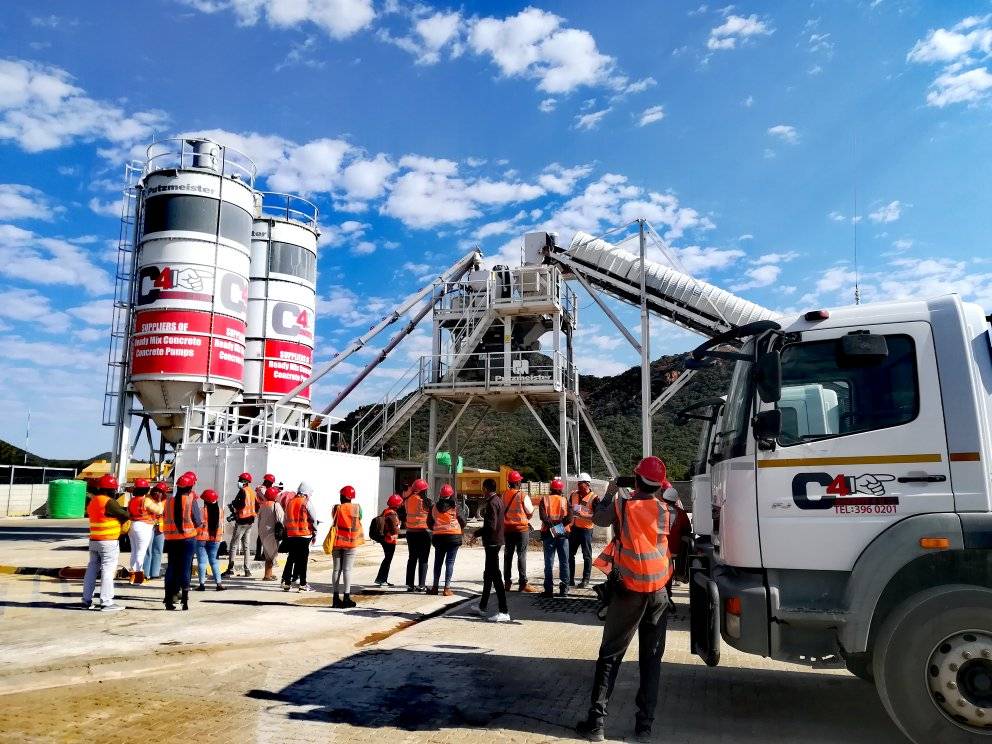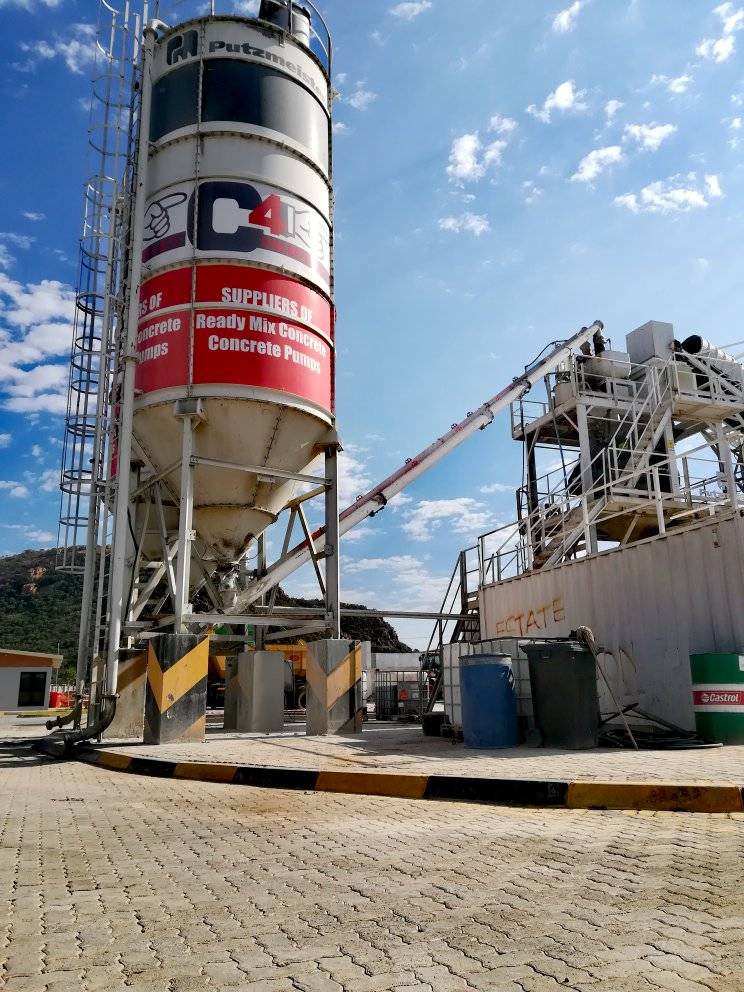AfricaProperty & Construction
Concrete 4U Media Tour
Concrete 4U is a 100% citizen owned company and it’s aim is to serve the community with respect and dignity.
It has done variety of projects including the well known bridge project, C4U does both minor and major projects.
Concrete 4U Plant Manager, Mr. Iddo Van Tonder shares on the quality control process of the cutting-edge ready mix concrete plant. From the sourced raw materials to the selection and testing of components in order to achieve the desired suitable finish product.


Representatives from various media outlets were shown how every process is measured in scale, types of machinery used. C4U works hand in hand with Corelab for testing and If results indicate fail after the water stage then there’s a specific process it has under go depending on how the components came out. Each stage is to guarantee their compliance with industry specifications.










